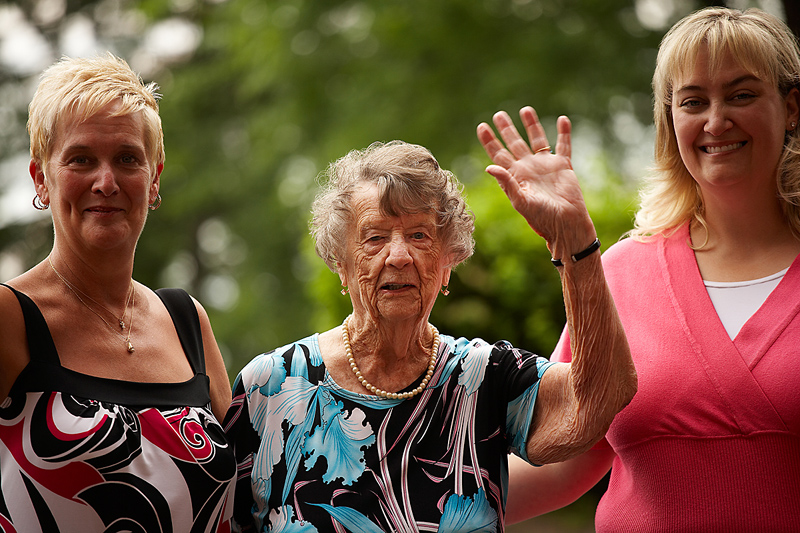
THURSDAY, Aug. 26 (HealthDay News) — Doctors who are atheist or agnostic are almost twice as likely as their religious counterparts to make medical choices that can end a terminally ill patient’s life more quickly, a new British study reveals.
“The religious beliefs of British doctors influence how they provide care for dying people,” concludes study author Clive Seale, a professor of medical sociology at the Centre for Health Sciences in Barts and The London School of Medicine and Dentistry at Queen Mary University of London.
For example, “religious doctors are less likely to report having taken decisions which they expected or partly intended to shorten patients’ lives, such as withdrawing life-sustaining treatments,” Seale noted. “[And] in the few times they do take such decisions, they are less likely to say they discussed this with the patient.”
Seale reports the findings in the Aug. 26 online edition of the Journal of Medical Ethics.
To gain insight into the issue, Seale analyzed nearly 4,000 survey responses regarding end-of-life care and religious beliefs, completed between 2007 and 2008 by working doctors residing in the United Kingdom.
Those polled included representatives from a wide range of fields, including neurologists, general practitioners, public health physicians and specialists in elder care and palliative medicine.
Each doctor was asked to reveal his or her religious background and beliefs, ethnicity, opinions regarding the use of sedation, and stance regarding the ongoing legal debate concerning assisted dying. Each was also asked to discuss their experience with the most recent patient who died while under their care.
Seale found that those doctors who focused on elder care were somewhat more likely to be Asian and to identify as Hindu or Muslim. Those in palliative care were more likely to be white, identify as Christian, and describe themselves as “religious.”
General practitioners, Seale noted, did not appear to be more likely to hold strong religious beliefs in general. This finding stood in contrast to prior research that focused on the backgrounds of American general practitioners and found that as a group they were more likely to be “religious.”
Although ethnicity did not seem to play a significant role in the decision-making process regarding controversial ethical issues, in general white physicians (who were the largest group) were the least likely to describe themselves as having strong religious beliefs and the most likely to support legal changes that allow for physician participation in assisted-dying scenarios.
Non-white and non-Asian physicians were more likely to stand in opposition to assisted dying, as were palliative care doctors as a whole.
Regardless of specialty, those doctors who described themselves as “very or extremely” non-religious were generally more likely to have incorporated sedation into the treatment of dying patients, and twice as likely as religious doctors to have been involved in decisions intended to hasten the end of life.
Doctors in hospital specialties were about 10 times more likely to say they had been involved in a decision that was expected to hasten the end of life than palliative care physicians were. In fact, the latter group, irrespective of religious stance, was the least likely overall to have engaged in such decisions, Seale found.
As has been observed in American research, Seale observed that very religious doctors of all ethnicities were less likely to discuss options intended to help hasten the end of life for their patients, even if the patient was capable of having such a discussion.
Seale suggested that all doctors, whether religious or not, should make a greater effort to consider how their personal perspectives might impact both doctor-patient interactions and the overall decision-making process regarding treatment.
“I believe doctors and patients need to be more aware of the part played by care providers’ beliefs and values when they plan care towards the end of life,” he said.
Dr. R. Sean Morrison, president of the American Academy of Hospice and Palliative Medicine and director of the National Palliative Care Research Center, agreed that a doctor’s personal perspective matters.
“Physicians have feelings,” he said. “Physicians have beliefs. And those feelings and beliefs can influence some of the advice and decisions they make. But the key is not to let those feelings and beliefs guide your care, but to recognize when it’s happening and how it might be in conflict with the patient’s best interests.”
In that regard, Morrison, who is also vice chair of research in the Brookdale department of geriatrics and palliative medicine at Mount Sinai School of Medicine in New York City, noted that medical schools have begun to address this issue, to sensitize physicians to such conflicts of interest.
“It’s a recent phenomenon within the last 10 years, within the growth of palliative care,” he said. “But now it’s one of the things we are taught, how to recognize our own feelings and beliefs and recognize when those feelings and beliefs may be controlling our actions. And recognizing how to cope with that so that the patient becomes the sole focus. And that requires training.”
More information
For more on palliative care, visit the U.S. National Institutes of Health.

